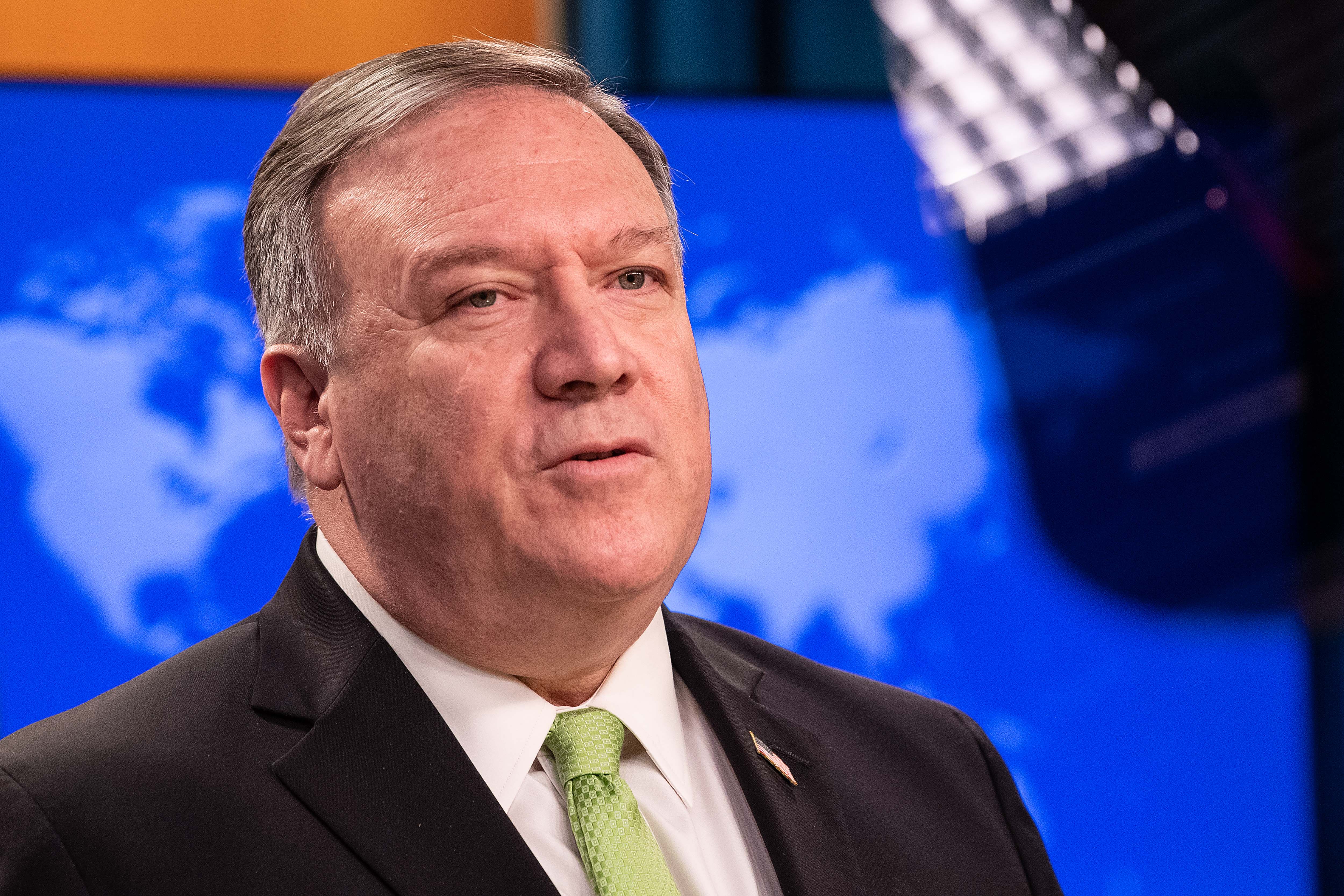
Secretary of State Mike Pompeo reported to Congress on Wednesday that Hong Kong was no longer autonomous from China, a move that could jeopardize the special administrative region's favorable trade relationship with the U.S. and open up Chinese officials to sanctions.
The State Department was required to issue a determination on Hong Kong's autonomy under pro-democracy legislation passed late last year. The law also requires the president to impose sanctions on foreigners who undermine "fundamental freedoms and autonomy in Hong Kong."
Pompeo's move comes amid a controversy in Hong Kong over a proposed national security law from Beijing that has spurred protests in the streets of the former British colony.
The proposed law from China's National People's Congress would effectively bypass Hong Kong's own legislature and targets acts of sedition against the central government. Fears over China's encroachment on the business center's independence have roiled the region for months and contributed to sending Hong Kong's economy into recession last year.
"No reasonable person can assert today that Hong Kong maintains a high degree of autonomy from China, given facts on the ground," Pompeo said in a statement.
"Hong Kong and its dynamic, enterprising, and free people have flourished for decades as a bastion of liberty, and this decision gives me no pleasure. But sound policy making requires a recognition of reality," Pompeo said. "While the United States once hoped that free and prosperous Hong Kong would provide a model for authoritarian China, it is now clear that China is modeling Hong Kong after itself."
Hong Kong has so far been exempted from the punishing tariffs on exports to the U.S. that the Trump administration has imposed on China as part of President Donald Trump's multiyear trade war with the country.
But business groups have warned of negative consequences if that special status were to be removed, and experts have expressed skepticism that the U.S. will impose significant costs on China over Hong Kong.
Trade in goods and services between the U.S. and Hong Kong totaled more than $66 billion in 2018, according to the Office of the U.S. Trade Representative. The State Department has said that there are more than 1,300 U.S. firms doing business in the administrative region.
Natasha Kassam, a research fellow at Australian think tank Lowy Institute, told "Capital Connection" that the U.S. could revoke some of Hong Kong's privileges, but said such an action was the "nuclear option."
"You can only pull that lever once and it's not clear that will necessarily work," Kassam said.
Trump's own intentions remain unclear, making it difficult to predict the administration's next steps. The president has expressed only limited interest in the Hong Kong protests, and has so far shown little appetite for actions that could jeopardize his nascent trade deal with Beijing.
Tensions between the U.S. and China have been rising as a result of the spreading coronavirus pandemic, which was first reported in Wuhan, China, last year. Officials in both countries, the world's two largest economies, have sought to pin blame for the deadly contagion on each other.
-- CNBC's Christina Wilkie contributed to this report.
This is breaking news. Check back for updates.
https://news.google.com/__i/rss/rd/articles/CBMiXmh0dHBzOi8vd3d3LmNuYmMuY29tLzIwMjAvMDUvMjcvcG9tcGVvLWRlY2xhcmVzLWhvbmcta29uZy1uby1sb25nZXItYXV0b25vbW91cy1mcm9tLWNoaW5hLmh0bWzSAWJodHRwczovL3d3dy5jbmJjLmNvbS9hbXAvMjAyMC8wNS8yNy9wb21wZW8tZGVjbGFyZXMtaG9uZy1rb25nLW5vLWxvbmdlci1hdXRvbm9tb3VzLWZyb20tY2hpbmEuaHRtbA?oc=5
2020-05-27 16:49:37Z
Tidak ada komentar:
Posting Komentar